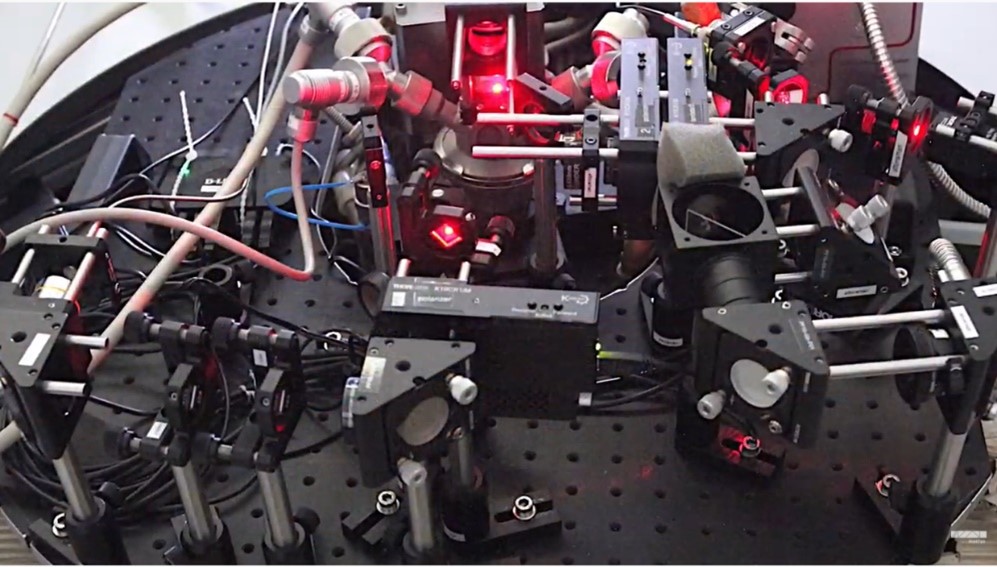Partnership with Alzheon to develop first Alzheimer’s diagnostic assay for measuring neurotoxic beta amyloid oligomers in human brain
IOCB Prague entered into a collaboration and license agreement with Alzheon, Inc., a clinical-stage biopharmaceutical company focused on developing new medicines for patients suffering from Alzheimer’s disease (AD) and other neurodegenerative disorders to develop the first clinical assay to measure neurotoxic beta amyloid (amyloid, Aβ) oligomers in human cerebrospinal fluid (CSF). Josef Cvačka and his team at IOCB Prague will apply Alzheon’s technology for detecting oligomers into a customized clinical assay in human CSF. This initiative builds on successfully completed feasibility studies performed over the past year by the two organizations.
The assay will be sensitive to the full spectrum of soluble oligomer species in CSF and will be able to quantify the amyloid oligomer burden in the brain. It is designed to address the limitations of current assays used to detect amyloid oligomers, such as enzyme-linked immunosorbent assays, that can be sensitive to oligomer levels, but are non-specific, as they do not distinguish individual species of Aβ oligomers.
“In just the last year, we have seen clinical validation and consensus around the importance of targeting soluble amyloid oligomers to effectively treat Alzheimer’s patients, however, these oligomers are extremely challenging to track,” said Martin Tolar, MD, PhD, Alzheon Founder, President and Chief Executive Officer. “Working with IOCB, we will apply state-of-the-art analytical chemistry technologies to develop an assay that can provide a key missing piece of the puzzle – detecting and measuring neurotoxic amyloid oligomers, the underlying ‘fire in the brain’ driving Alzheimer’s pathology. Such a tool is not only valuable as a diagnostic for patients with Alzheimer’s disease, but also offers a way to monitor response of patients to therapy. Using genetics-based precision medicine, we are advancing our oral tablet ALZ-801 into Phase 3, and in our studies, we will now have an opportunity to determine how reduction in oligomer toxicity correlates with clinical benefit.”
The collaboration between Alzheon and IOCB will leverage Alzheon’s discoveries and scientific expertise in AD, particularly the insights into the role of Aβ oligomers in disease biology. Alzheon will provide biospecimens from AD patients including samples from patients treated with ALZ-801. The IOCB researchers will be primarily responsible for the development and validation of an assay to detect amyloid oligomers and to measure the change in amyloid levels in biological samples following treatment with Alzheon’s anti-oligomer agents, such as ALZ-801.
“Beyond its diagnostic and theragnostic potential, this assay will provide researchers and clinicians with the ability to profile monoclonal antibodies and other Alzheimer’s drugs with different selectivity for amyloid oligomers relative to fibrils and plaque, which can improve therapeutic paradigms for patients,” said Prof. Ing. Martin Fusek, CSc., Vice-Director for Strategic Development of IOCB. “We are excited to enter this partnership with Alzheon, the market leader of small molecule anti-amyloid agents, in developing a novel approach to measuring the toxic products of amyloid aggregation. This new assay can have a far-reaching impact on Alzheimer’s research and treatment by illuminating new aspects of the disease mechanism and by informing interventions to stop or even prevent the disease process.”
Recent findings from AD studies and clinical trials provide strong evidence that soluble amyloid oligomers are directly neurotoxic upstream drivers of AD pathology, leading to progressive increase in phosphorylated tau protein and neuronal injury markers in CSF and plasma of AD patients. Amyloid oligomers are a key target of several promising Phase 3 antibodies for Early AD including aducanumab, lecanemab/BAN2401 and donanemab, as well as Alzheon’s lead clinical candidate, ALZ-801, an oral treatment that fully blocks formation of neurotoxic oligomers in the brain at clinical dose.






